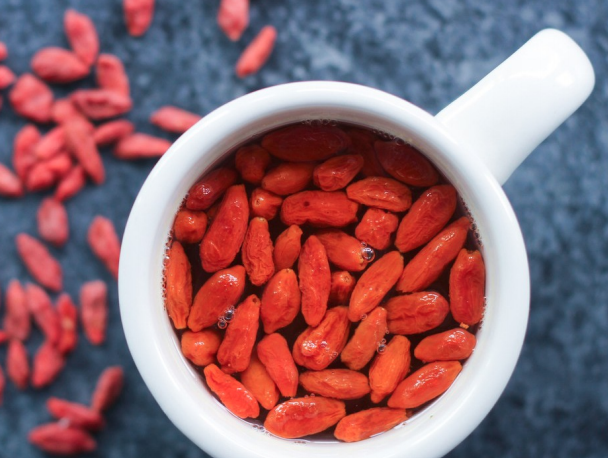 Relativity is funny, isn’t it? Albert Einstein is reported to have said something along the lines of, “Put your hand on a hot stove for a minute, and it seems like an hour. Sit with a nice girl for an hour, and it seems like a minute. That’s relativity.” Or just an old-fashioned, creepy metaphor perhaps?
Relativity is funny, isn’t it? Albert Einstein is reported to have said something along the lines of, “Put your hand on a hot stove for a minute, and it seems like an hour. Sit with a nice girl for an hour, and it seems like a minute. That’s relativity.” Or just an old-fashioned, creepy metaphor perhaps?
Anyway – you can see how he might have a perspective on relativity. Think of it this way: vacation time? Goes fast! Binging on your favourite Netflix series? Fast! Reading from A to L in my Hormone series? Super fast (LOL forgive the shameless plug but I really want you to take advantage and get all this important info – so catch up now!)
What about time spent in a dental chair? Or waiting for an important package to arrive in the mail? Or working on spreadsheets and data analysis? Endlessly sloooowwwww, right? Unless spread sheets are your jam, of course! For me – these are definitely like molasses in January as my Gran used to say.
So how does this relativity all relate to your metabolism? There certainly are objective ways to measure metabolic rates, similar to how we assign numerical values to ‘measure’ time with seconds and minutes and hours and days and years. But also similar to time, we have a tendency to interpret it subjectively.
If you ask people who are struggling with their weight or feeling sluggish and ‘meh’, or needing to pile on the socks and sweaters when companions are flinging open the windows, how they perceive their metabolism, many will reply with a defeated tone of voice, “it’s slow – so slow!”
If you have that ‘skinny’ friend who can eat anything she wants and never gain an ounce, you might think it’s because she’s got a fast metabolism.
But fast or slow, understanding how metabolism works and what you can do to optimize it is what M is all about. That and maybe a little myth-busting too!
What can slow my metabolism?
Metabolism includes all of the biochemical reactions in your body that use nutrients and oxygen to create energy. And there are lots of factors that affect how quickly (or slowly) it works. This is known as your “metabolic rate” which is measured in calories as units of energy used.
I don’t buy into that old adage “calories in-calories out” as a measure of whether your metabolism is on point. It’s a lot more complicated than that and hormones – like the thyroid hormones – play a big role in whether the calories you are taking in are being metabolized properly (working fast) or if your metabolism is well, not metabolizing as it should.
But that too is just part of the story. There are lots of reasons why your metabolism may slow down. Some common reasons and the ones I’ll touch on today include:
- low thyroid hormones
- your history of dieting
- body size and composition
- your activity level
- sleep (yes, next to poop it is my favourite wellness subject!)
Low thyroid hormones
Your thyroid is the master controller of your metabolism. Two key thyroid hormones (T3 & T4) tell the cells in your body when to use more energy and become more metabolically active. Ideally it should work to keep your metabolism ticking along just right. But there are several things that can affect it and throw it off course. When the thyroid gland produces fewer hormones, your metabolism slows down. Also, autoimmune diseases and mineral deficiencies (e.g. iodine or selenium) will also have a profound impact.
Look, as someone who has experienced low thyroid and the related issues that come along with that, I always advise 3 things: take a basal temperature test (you can see how here), see your medical doctor and/or your naturopath about getting a full thyroid panel done (note: you are going to get different perspectives and depths of insight from each), and you will need to change your diet to pamper that poor little gland.
We’ll likely be talking in much more depth when we get to T for Thyroid, but if you pop back to the G is for Goitrogens post you’ll get some details about thyroid-suppressing foods to watch for.
Your history of dieting
When people deliberately set out to lose weight, their metabolic rate often slows down. This is because the body senses that food may be scarce, that the famine is upon us! It adapts by trying to continue with all the necessary life functions but all with less food. Our reptilian brains kick in and all we know is that we gotta survive. So we slow everything down, especially our expenditures of energy ie: calorie burning.
Now imagine if you’ve been a yoyo dieter…..feast, famine, feast, famine, feast, famine! Your body is subjected to this rollercoaster over and over and over again so metabolically, it doesn’t know which way is up. So yes….. you probably do have a dysregulated metabolism, that is used to driving in the slow lane at the very least.
While dieting may lead to a reduction in amount of body fat, some plans, especially extremely restrictive diets, can unfortunately also lead to a reduction in the amount of muscle you have. This too will wreak havoc with your metabolism because more muscle means faster resting metabolic rate. Muscle tissues is a lot harder working than adipose tissue (fat) and needs to burn more energy – so that’s why having more helps to boost your metabolism.
One last note on dieting – eating boosts metabolism. Sounds counter-intuitive to say, “to lose weight, you have to eat more”, but it’s true. Note: this is not a “pass Go and eat as much of whatever you want” kind of deal (yup, that was a Monopoly reference!). But if you are depriving your body of the energy (calories) it needs to thrive, it’s going to go into survival mode. And that means it will hold on to the calories you do put in and store them (as fat) just in case more is not forthcoming. And as I mentioned above – when in survival mode, the metabolic burning slows down as much as possible and that’s why for people who are seeking weight reduction, it sometimes feels like the less you eat, the less you are able to reduce the weight. But cutting more and more and more calories from your daily intake is not the answer. Ever.
One final thing: pretty sure you know this but – not all food is created equal. And that means when you eat junk food you’re not really satisfying your body or boosting your metabolism even if you are eating the ‘right’ amount of calories. Junk food (and I don’t just mean chips and pop) is not really food and will not support the metabolic burn. And it will mess with your hormones straight up. You can get more details about how this goes down in the Junk the Junk Food post.
Just like the renowned food writer Michael Pollan said, the best philosophy for a good diet is: “Eat real food. Mostly plants. Not too much.”
Body composition and size
Here’s a sweeping generality: larger people have faster metabolic rates than smaller people. This is because it takes more energy to fuel a larger body than a smaller one.
However – what really makes the difference is what type of tissue composes those larger bodies.
As I mentioned earlier, muscles that actively move and do work need energy. Even muscles at rest burn more calories than fat. This means that the amount of energy your body uses depends partly on the amount of lean muscle mass you have.
Have you heard of the term ‘skinny fat’? This essentially describes a person who may be of ‘normal’ weight or may even be very thin – but has no muscle mass. There is a high degree of possibility that they would have a slowed down metabolism. And remember – metabolism is needed to energize the body for all kinds of daily activities from breathing, to walking, to thinking. Thin does not always equal fit or healthy or metabolically sound. Remember that, OK?
Weight bearing exercise can help increase your muscle mass. And it is important that we do it especially as we age to keep our bones strong as well as our metabolism firing. Doesn’t have to be cross fit or weight training to be effective. Many forms of yoga or pilates are also strength building and good choices to build muscle.
Which leads us to…
Your activity level
Aerobic exercise temporarily increases your metabolic rate – blame it (in part) on the elevated testosterone levels (and yup, that’s a hormone!). Your muscles are burning fuel to move and do the work and you can tell because you’re also getting hotter.
Current thinking says we need 150 minutes of exercise (that engages the muscles and makes you work a little harder, breathe a little deeper) each week. So 30 minutes every day. But it doesn’t have to be 30 minutes all at once. Even little things can add up. You can break your 30 minutes up into 10-minute chunks. How about going a little farther than you usually do to walk your dog or when you go to get some groceries? Or using a standing desk instead of sitting all day? Or taking the stairs instead of the elevator? These can all contribute to more activity in your day. Don’t sabotage yourself and your health by saying you don’t have time to fit in a 30-minute workout. Get up and away from your device or the TV or your desk and just start moving, bit by bit.
The great thing about establishing a regular exercise regime is it can boost testosterone levels on a day-to-day basis (yes, in women too!). This can result in an increased overall metabolic rate.
Just a heads up though – if you’re a beast in the gym and your workout routine is always high intensity and always tough on your body, this will result in chronically elevated stress hormones. If you need a refresher on how that can become problematic, go ahead and read C for Cortisol. As a quick highlight, one of the by-products of chronically high cortisol levels is a retention of fat – so if you fall into the camp of “I’m killing it at the gym and the scale won’t move”, it could be stress and cortisol at play.
This does not mean that you should forego challenging physical activity. But since overexercising can backfire on you while you’re on a weight loss journey, just be sure to mix it up a bit to include gentler, cortisol-lowering exercises like walking and/or yoga as well.
Sleep – or lack of it
Okaaaay – my personal favourite, yet very overlooked topic when it comes to good overall health – sleep! There is plenty of research that shows the influence that sleep has on your metabolic rate. The general consensus is to get 7-9 hours of sleep every night. I know, I know, Martha Stewart and Jay Leno and Thomas Edison and probably a bunch of other ‘geniuses’ have bragged about how they function just fine on 4 hours. But I am here to tell you – it’s not sustainable for a healthy metabolism and hormonal balance.
If you’re staying awake longer than you should be, your brain thinks, “Imma need more energy! Imma need food, stat!” So it triggers your hunger hormone pathways – helloooo activated ghrelin – to stimulate a greater appetite. At the same time, leptin hormones drop – that’s the hormone that tells your brain, “enough, I have enough food/energy”. So when leptin levels dip, you’ll feel the need to continue eating.
In terms of your metabolic rate, it’ll slow down – just to make sure that you’re not going to burn through whatever resources you currently have (same effect that we covered under ‘dieting’). That means that it’s going to process food energy slower than it usually does. All in the name of survival.
Going along with the survival theme, it’ll also increase insulin in the bloodstream. Here, the increased blood insulin will promote more fat storage – you know, just in case you need that energy stored for later.
But that’s not all.
Running on less sleep also affects your cortisol levels – because of course it will! I wrote a whole blog on this stress hormone, so go have a look. But, here’s a brief summary: You’ve probably guessed by now that if you’re sleep deprived, it’s going to elevate your stress hormones. But what happens when cortisol rises?
- It stimulates hunger (Because You. Need. Energy.)
- It stimulates fat storage (Because You. Need. Backup. Energy).
- It stimulates the breakdown of muscle mass to convert the muscle proteins into energy. Whoa, scary? Well, your brain doesn’t think so. Your brain is in ‘survival mode’ and just needs More. Energy. (ARRGGHH – these are all great mechanisms to keep humankind alive, but holy cow, it can be difficult to work around if you are working on reducing weight or changing your body composition!)
Crazy, right?? Because not only do we have the cortisol going, but also the insulin and the hunger hormones. Moral of the story? Just get enough sleep so your hormones (and brain) doesn’t freak out. Your waistline will thank you.
So what does this all mean?
A sloooooooow metabolism can be the result of a lot of factors. And it can be frustrating. But the good news? You are not doomed! Plenty of things can be tweaked, fixed, and changed to help your metabolism heal and get back to doing what it does best – use the nourishing nutrients you feed it to give you the energy you need to love and live your life!
Need more info to get your own metabolism back on track? I’m just a click away!
Recipe: Tropical Smoothie
Serves: 2
Foods rich in digestive enzymes can help improve metabolism because they help to break down food into energy. Try my newest green smoothie – the pineapple supplies the digestive enzyme, bromelain, and the papaya is a tasty source of another enzyme ton help with digestion, papain.
Ingredients:
- 1 cup Papaya (chopped)
- 1 cup Pineapple (chopped)
- 1 Cucumber (chopped)
- 5 Ice Cubes
- 1/2 cup Mint Leaves
- 1 cup Baby Spinach
- 2 Tbsps Chia Seeds
- 1 cup Water
Directions:
- Add all ingredients to blender and blend until smooth. Pour into a glass and enjoy!
Recipe: Sleep-Promoting Goji Berry Tea
Serves: 2
 Goji berries are naturally caffeine-free and loaded with relaxing melatonin. Have a mug in the evening instead of your coffee/tea.
Goji berries are naturally caffeine-free and loaded with relaxing melatonin. Have a mug in the evening instead of your coffee/tea.
Ingredients:
- 2 Tbsps Goji Berries
- 1 cup Water (boiled)
Directions:
- Place the Goji berries in a teacup and pour boiled water over top. Cover and let steep for 5 minutes.
- Sip your tea with the Goji berries left in. You can eat them as you go. Enjoy!
REFERENCES
http://www.precisionnutrition.com/metabolic-damage
http://www.precisionnutrition.com/thyroid-and-testing
http://www.precisionnutrition.com/all-about-energy-balance
https://www.healthline.com/nutrition/6-mistakes-that-slow-metabolism#TOC_TITLE_HDR_2
https://www.healthline.com/nutrition/10-ways-to-boost-metabolism
http://summertomato.com/non-exercise-activity-thermogenesis-neat
